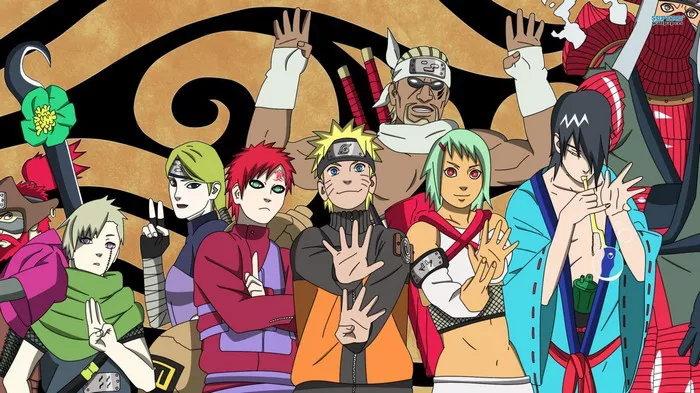Tsunade, a prominent character in the Naruto series, served as the Fifth Hokage of the Hidden Leaf Village, leading with wisdom, strength, and compassion. However, her tenure as Hokage came to an unexpected end when she made the decision to step down from her position of leadership. In this article, we delve into the intricacies of Tsunade’s decision, exploring the factors that led to her resignation and the implications for the village and its residents.
The Legacy of Tsunade: A Leader of Strength and Compassion
Tsunade’s Rise to Power
Tsunade’s journey to becoming Hokage was marked by adversity, tragedy, and personal growth. As the granddaughter of the First Hokage, Hashirama Senju, and a member of the prestigious Senju clan, Tsunade inherited a legacy of leadership and resilience. However, her path to leadership was fraught with challenges, including the loss of loved ones and her own struggles with self-doubt and trauma.
Leadership Style and Achievements
As Hokage, Tsunade demonstrated a unique leadership style characterized by a balance of strength, pragmatism, and compassion. She prioritized the well-being of the village and its residents, making decisions that prioritized peace, prosperity, and stability. Under her leadership, the Hidden Leaf Village flourished, rebuilding in the aftermath of war and conflict and strengthening its alliances with neighboring villages.
Contributions to the Ninja World
Tsunade’s tenure as Hokage was marked by numerous contributions to the ninja world, including advancements in medical ninjutsu, diplomacy, and village defense. She played a pivotal role in training the next generation of ninja, mentoring prominent characters such as Naruto Uzumaki, Sakura Haruno, and Shikamaru Nara. Additionally, Tsunade’s expertise in medical ninjutsu saved countless lives on the battlefield and helped mitigate the impact of injuries and illnesses among ninja.
The Decision to Step Down: Exploring Tsunade’s Motivations
Personal Trauma and Resilience
Tsunade’s decision to step down as Hokage was deeply influenced by her personal experiences and traumas. Throughout her life, Tsunade grappled with loss, grief, and survivor’s guilt, stemming from the deaths of her loved ones, including her younger brother, Nawaki, and her lover, Dan Kato. These experiences left Tsunade emotionally scarred and burdened by a sense of responsibility for the well-being of the village.
Physical Limitations and Health Concerns
Another factor contributing to Tsunade’s decision to step down as Hokage was her declining health and physical condition. As a result of her extensive use of chakra-based techniques and the toll of battle injuries, Tsunade’s body began to show signs of strain and deterioration. Despite her remarkable regenerative abilities as a medical ninja, Tsunade’s body struggled to keep up with the demands of her role as Hokage, leading to concerns about her ability to fulfill her duties effectively.
Desire for Renewal and Change
In addition to personal and health-related factors, Tsunade’s decision to step down may have been motivated by a desire for renewal and change within the Hidden Leaf Village. After years of service as Hokage, Tsunade may have felt that it was time for a new generation of leaders to take the helm and guide the village into the future. By stepping down from her position, Tsunade may have hoped to pave the way for fresh perspectives, ideas, and leadership styles to emerge within the village hierarchy.
The Aftermath: Impact on the Hidden Leaf Village
Leadership Transition and Succession
Tsunade’s decision to step down as Hokage necessitated a transition of leadership within the Hidden Leaf Village. In the wake of her resignation, the village elders and ninja council likely convened to select a successor to fill the vacant position of Hokage. This process would have involved careful deliberation and consideration of candidates’ qualifications, experience, and leadership abilities.
Continuity of Policies and Initiatives
Despite the change in leadership, the policies, initiatives, and alliances established during Tsunade’s tenure as Hokage likely continued to shape the trajectory of the Hidden Leaf Village. Tsunade’s successor would have inherited her legacy and responsibilities, including the ongoing efforts to maintain peace, protect the village from external threats, and promote the well-being of its residents. While leadership transitions can bring about changes in priorities and strategies, continuity and stability are often prioritized to ensure the smooth functioning of the village.
Legacy and Influence
Tsunade’s legacy as Hokage would have endured long after her departure from office, continuing to influence the village and its residents for generations to come. Her contributions to medical ninjutsu, diplomacy, and village defense would have left an indelible mark on the Hidden Leaf Village, shaping its identity and guiding its evolution. Additionally, Tsunade’s leadership style and values would have inspired future generations of ninja to uphold the principles of courage, compassion, and perseverance in their own journeys.
Conclusion: Tsunade’s Journey and Legacy as Hokage
In conclusion, Tsunade’s decision to step down as Hokage was a deeply personal and complex choice influenced by a combination of factors, including personal trauma, health concerns, and a desire for renewal within the Hidden Leaf Village. Despite her resignation, Tsunade’s legacy as Hokage endures, leaving an indelible mark on the village and its residents. Her leadership, resilience, and compassion continue to inspire future generations of ninja as they navigate their own paths of growth, adversity, and triumph within the ninja world.


